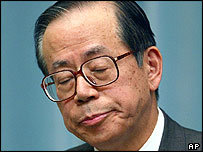Last time I mentioned the “second childhood” I’d enjoyed as a student of Japanese. It’s true — learning a foreign language as an adult is not so different from a child acquiring his first language, and there are many similarities between the two. For example, there’s word play, joining this word and that to see what happens as you explore the boundaries of grammar and vocabulary. While native speakers of a given language are shackled by social rules and expectations, new learners are free to be creative since they don’t yet know what can’t be said. This is where we get phrases like “happiness blows on me” (a shampoo marketing tag line) and “Happy Ice Cream!” (what a kid says when they accidentally say the same thing as their friend) and sports drink named Pocari Sweat. Back when I was an ESL teacher, I had a lot of evening classes teaching English to elementary school kids, and many of the silly jokes they would come up were very amusing to the as-yet unsophisticated Japanese part of my brain. One such joke is Inochi kakeru? (EE-no-chi ka-KEH-roo? 命かける?), which means “Would you bet your life on that?” Since the word kakeru could also mean “to be able to write,” the phrase could be alternately taken to mean “Can you write the kanji for ‘life’?” (命書ける?) which the other person must promptly demonstrate. I had never heard this joke and laughed heartily at it, although it’s about as funny as a screen door on a submarine to Japanese who grew up here. Learning a foreign language is fun because it’s one of the few situations where you can act like a child without being self-conscious about it.
Autumn is upon us in Japan, and that means one thing: School Sports Day, a special event held at all elementary schools where kids run relays, do tug-of war, have egg toss competitions, perform dances or brass band numbers that they’ve been practicing for months, and so on. (The band at my daughter’s school plays the Space Battleship Yamato/Star Blazers theme every year without fail.) Tomorrow is our turn to “oo” and “ah” at our daughter’s school as the kids celebrate youth and sports, and we’ve got everything ready, from folding chairs to cameras to bento. Companies know that parents are really “oya-baka” (“parent-fools” who go ga-ga over their own kids), and target them with new devices that will allow them to record their children for posterity. The newest offering from Panasonic promises to put “full hi-vision into Mama’s hand” with a small video camera that records 1920×1080 resolution video on SD cards. I’m not sure if smaller electronics are considered a feature for mothers rather than fathers, or if Panasonic is being smart by aiming at the person who controls the household’s purse strings (as women usually do in Japan), but it’s a darned nice video camera, anyway. (Click here to see this year’s commercial. Flash required.)
Recently the Toyota Prius had its 10th anniversary as a shipping product, and to celebrate, Toyota licensed the characters of Osamu Tezuka to promote the successful car. As the creator of many of the early smash hits in manga and animation, Tezuka holds a special place in Japan today as the”God of Manga.” He created his first manga at the age of nine, and went on to pen over 150,000 pages during his lifetime. He’s credited with inventing the famous large eyes seen in Japanese animation, although he was just imitating Walt Disney and Betty Boop, and he was the first person to successfully bring animation of manga-style images to the television screen. The list of his contributions to Japan’s manga and anime world are long, including Jungle Emperor Leo (aka Kimba the White Lion), Tetsuwan Atom (Astro Boy), Hi no Tori (the Phoenix, one of my all-time favorites), biographical stories about the lives of Buddha and Beethoven, and the long-running Black Jack. Stanley Kubrick was a fan of Tezuka and wanted him on the design staff for 2001: A Space Odyssey, but the artist couldn’t take the time away from his comics drawing.















